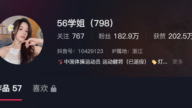【新唐人2014年02月07日讯】中国农村不能与父母长期一起生活的留守儿童,已经超过6000万。这个庞大的未成年群体,面临的诸多问题,已经引起社会的广泛关注。分析人士指出,中共政府“歧视性政策”,直接导致了“留守儿童”的问题日益严重。
据中共“妇女联合会”公布的最新数字,目前中国的“留守儿童”多达6100万,占大陆儿童总数的5分之1。也就是,每5个儿童中,就有一个儿童不能经常与父母生活在一起。
目前定居美国的“中国妇权”创办人张菁表示,中共“妇联”统计的这一数据,不是一个正确的、准确的数字。
“中国妇权”创办人张菁:“ 其实妇联大概在好几年前,那时候我们自己私下的统计已经至少有4千多万、5千万的时候,然后他们宣布说只有2千万,因为中国妇联基本上是政府的传声筒,所以他们的统计跟官方基本上差不多。官方的数据那你就加倍就好了,历年来就是这样子。”
不过,张菁认为,从这个数据上可以看到,中国“留守儿童”的问题非常严重。
“留守儿童”是指,父母外出打工,而被留在家乡或寄宿在亲戚家中,长期与父母分开居住、生活的儿童。
人口约2万3000人的广西隆安县布泉乡,地处大石山区,是中国最贫困的乡镇之一,青壮年们都纷纷外出打工。
一名回布泉乡过年的隆姓大二学生,曾是“留守儿童”。他回想6、7岁时,父母离乡外出打工,给他留下的感受。
广西隆安县布泉乡隆姓学生:“最苦的就是回来的时候,有时候都很少跟他(们)说话,感觉很陌生。希望她在家﹗就是我母亲不出去打工,在家就好了,我读完书她就在家,就在一起﹗”
另一名与丈夫在广东佛山打工的王女士,也是布泉乡人,他们5岁多的儿子肖子成告诉《新唐人》,他特别想念爸爸妈妈。爸爸妈妈过年回家,是他最开心的时候。
广西隆安县布泉乡留守儿肖子成:“(希望)爸爸妈妈在家陪我,陪我跟小龙玩,因为我爱他们。”
王女士说,由于家乡很穷,当地有80%的人都外出打工,很多小孩都是由年老的爷爷奶奶照顾。
在广东佛山打工的王女士:“(他)认得我们,但是不喜欢跟我们玩,感到很生疏。(有的孩子)有些不记得了,有些他(父母)回来了,他都不叫爸爸妈妈的,说跟你叫爸爸妈妈的,他都不叫的。有些(孩子)几个月就放在家里面,回来不认得了。”
据统计,中国大陆从农村背井离乡到城市打工的农民工,大约有两亿5千万。中国的“二元户籍”制度导致外地人在教育、医疗等多方面受限制,再加上农民工外出打工,经济、生活条件都比较差,所以很多农民工被迫将孩子留在老家农村,由老人或亲戚照看。
张菁表示,中国“留守儿童”最大的问题就是安全问题:由于父母不在身边,女孩更容易受侵犯,包括性侵,而男孩子则被迫做奴工、童工。
张菁:“ 其次才是他们心理问题,对整个社会,将来几千万甚至上亿的孩子成长起来后,他们是什么样的心理状况、人的情感、对家庭的这种情感、或者是亲情的这种理解是什么样的,会不会是正常的?当然这是很大的问题了,有一些学者已经注意到这个问题,这个结果可能是一个灾难性的结果。”
张菁指出,中共是一个为自己利益集团服务的独裁政府,它会说,为了发展,“留守儿童问题”是一定要付出的代价。可是孩子是无辜的﹗张菁认为,是政策导致了中国的“留守儿童”问题日益严重,这个灾难性的后果,应该由中国共产党领导集团承担。
采访编辑/易如 后制/李勇
60 million Left-Behind Children forced to separate from parents
In China’s rural areas, the number of left-behind children,
who stay at home and separate from their parents,
exceeds 60 million.
Such a massive juvenile group is facing numerous issues,
which are widely troubling to society.
Analysts point out, this “discriminatory policy"
implemented by the CCP Authorities directly leads to
an increasing problem of left-behind children.
According to the latest figure published by the CCP
Women’s Federation (WF), China’s left-behind children
reached 61 million, one fifth of the total Mainland children,
which means, of every five children, one child has to
separate from the parents most of the time.
The founder of Women’s Rights in China Zhang Qing,
who now lives in America, says that such a figure
issued by China’s WF is not a correct and precise figure.
Zhang Qing: “About several years ago WF just
issued 20 million left-behind children,
but at that time our statistical number is more than 40 million
or around 50 million.
WF is fundamentally a mouthpiece of the CCP Authorities,
so their statistic is almost the same as the official figure.
The real data is normally double the official data,
which has lasted for many years."
On the other hand, Zhang Qing says, the figure also shows
the severity of the problem of Chinas left-behind children.
Left-behind children are referred to as those children
who are forced to stay at hometown or relative’s families,
and most of the time separate from their parents
who have to work far from their homes.
Buquan Town of Long’An County of Guangxi Autonomous
Region of Zhuang Ethnic Group has a population of 23,000,
which is located at a mountainous area
and is one of the poorest towns in China.
Most of the workforce leaves the town and works in other cities.
A sophomore whose family name is Long,
returns home for the Chinese New Year.
He was once a left-behind child.
He recalled his feeling at six or seven years old
when his parents left home to work in other cities.
The sophomore with Long family name:
“the hardest time was when I returned home from the school.
I rarely talked to them and kept a strange feeling to them.
I hoped my mom would stay at home
without working in other cities.
I hoped every time I could stay with her at home
when I came back from school."
Ms Wang and her husband are both working in Foshan City
of Guangdong Province.
The family is also homed at Buquan Town.
Their 5-year-old son Xiao Zicheng told NTD,
he is missing his dad and mom extremely.
His happiest time is his dad and mom returning home
for the Chinese New Year.
Xiao Zicheng: “(hope) dad and mom stay home with me,
and play together with me and a small dragon,
because I love them."
Ms Wang says, due to the poverty of the hometown,
around 80% of local people go to other cities to work
and leave many children cared for by old grannies.
Ms Wang: “(he) knows us, but he doesn’t like to
play with us and feels strange to us.
(Some children) even don’t recognize their parents
and don’t call them dad and mom when parents return home.
Even if asked to call them dad and mom,
they don’t want to.
Some kids cannot recognize their parents after
they have left home and worked outside for several months."
According to statistics, the migrated farmers who work
in urban areas far away from their rural homes
have a population of around 250 million.
China’s binary registered residence regime leads to
many migrated people facing restrictions in multiple aspects.
Further considering the poor income and living conditions,
most migrated farmers’ children have to
stay at their rural homes and be cared by grannies or relatives.
Zhang Qing says, the most serious issue of
China’s left-behind children is security.
Due to the absence of their parents,
girls are vulnerable to abuse, including sexual offences,
whereas boys are possibly forced
to do slave work or child labor.
Zhang Qing says:
“the second issue is their psychological health,
which involves even one hundred million kids.
What sort of psychological status, personal emotions
and affection to family will these kids have,
or how will they understand family affection
and family values after they grow up and become adults?
Are these normal? This is of course a huge problem.
Some scholars have already noticed the problem.
The consequence might be disastrous to society."
Zhang Qing points out, the CCP is a totalitarian government
which only cares about its own interest.
The government might say,
in order to achieve development,
left-behind children have to pay such a cost.
But these kids are innocent!
Zhang Qing confirms that it is governmental policy that
leads to an aggravated problem of
Chinese left-behind children, and hence
such a calamitous consequence has to be taken over
by the CCP leadership group.
Interview & Edit/YiRu Post-Production/LiYong




























